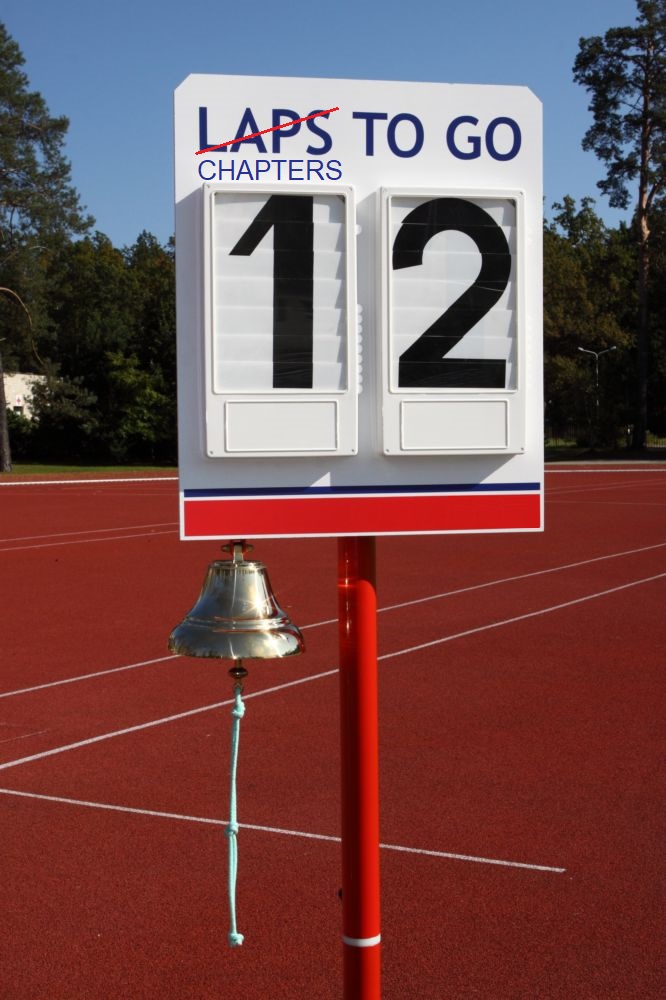For novelists, chapter endings can be tricky. If you’re agonizing over how to end a chapter, read on to see what I’ve learned.
For readers, the end of a chapter seems like the end of a lap in a race. They enjoy a brief feeling of accomplishment having reached a milestone marker, but the moment passes upon realizing how much more remains to be read.
For writers, a chapter ending serves two purposes. First, it must close out the chapter. That seems obvious, but I mean it in a deeper way. The writer called that section of the book a ‘chapter’ for a reason—perhaps a single scene, a particular setting, a character introduction, a revelation, a unit of time—and that reason must conclude. Whatever held that chapter together must wrap around and bind the other end.
Second, the end of the chapter should entice the reader to keep reading to the next one. Yes, it’s 1:37 AM and the reader has to go to work tomorrow, but the way that chapter ends compels the reader to keep going.
How do you accomplish those goals? Any number of ways. This post by John Matthew Fox at Bookfox and this one by Sacha Black offer many fine ways to end chapters. If handled well, new conflicts, surprises, jokes, mysteries, cliffhangers, and questions can all serve as chapter endings that springboard to the next.
In particular, I like Fox’s advice: don’t overthink it. Chapter endings, while important, don’t deserve as much of your time as the first sentence, opening paragraphs, and final words of your novel. Your book spans many chapters, and you must write an ending for each one. Ending each one the same way would bore the reader, so vary your ending method.
I also like Fox’s suggestion to examine the chapter endings used by your favorite modern authors. Analyzing the techniques of successful writers could result in approaches that will work for you. As always, don’t plagiarize. Imitate a technique, don’t copy words.
I’ll offer this test you can use to see if your chapter endings work. As you write your first draft, and as you edit each subsequent draft, do you stop writing for the day at the end of a chapter? Or do you feel an irresistible urge to start the next one? If you stop writing or editing at the end of a chapter, it’s likely readers will stop reading there. They might even stop reading your entire book.
Just as all novel chapters must end, so too with all blogposts. Well, come to think of it, if anyone could find a way for a blogpost to go on forever, it would be—
Poseidon’s Scribe

